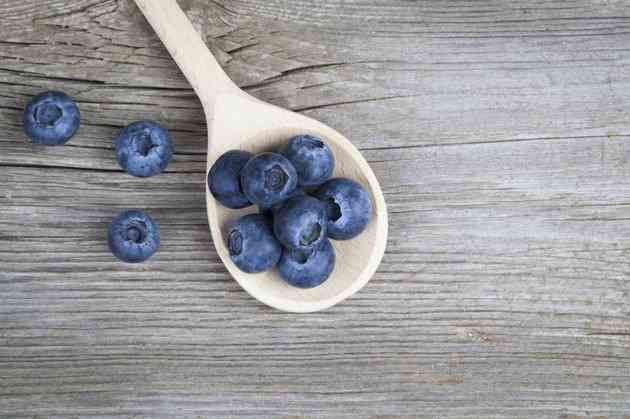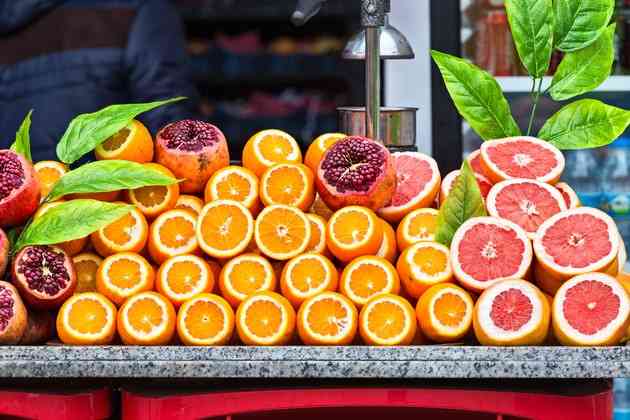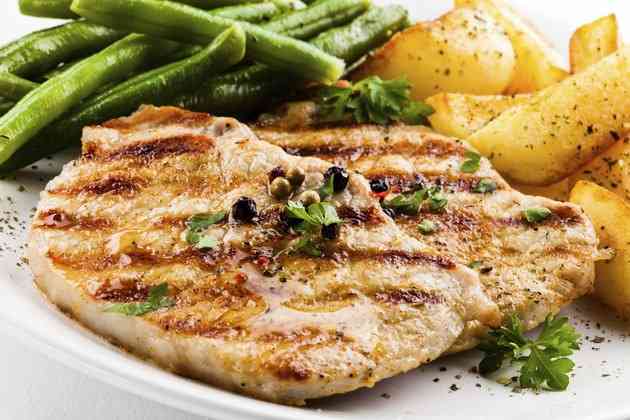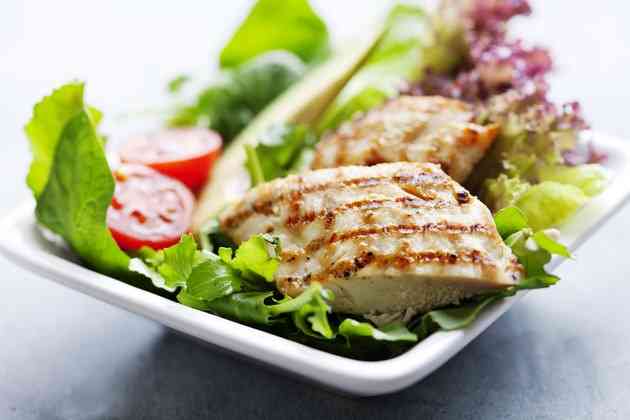The Best Food to Eat for Muscle Soreness

Your muscles might feel sore after a run or overdoing it at the gym, particularly if you don't normally exercise as rigorously. This occurs due to muscle damage and the buildup of natural waste products in your cells. Eating the right foods before and after physical activity can help your muscles heal faster, ease soreness and pain and even protect against muscle damage in the first place.
 Small wooden spoonful filled with blueberries. (Image: motorolka/iStock/Getty Images)
Small wooden spoonful filled with blueberries. (Image: motorolka/iStock/Getty Images)Protein Repairs Muscle
Protein-rich foods provide amino acids, the building blocks for your muscles and other body tissues. You must get adequate protein from your daily diet to help your body repair cells and build new ones, particularly if you have sore muscles. The Harvard School of Public Health recommends an average daily intake of 46 grams for adult women and 56 grams for men. If you exercise strenuously or are an athlete, you may need more protein. Ensure that you get at least two to three servings of protein per day. One serving includes 2 to 3 ounces of lean cooked meat, poultry or fish; an egg; an ounce of cheese; or 1/2 cup of cooked dried beans.
Blueberries Contain Potent Antioxidants
A 2010 study published in the journal "Molecular Nutrition and Food Research" suggested that antioxidant compounds found in blueberries may help prevent muscle damage. According to the research, blueberries contain high levels of antioxidants called anthocyanins that may help protect skeletal muscles -- such as those in your limbs -- from wastes produced during strenuous physical activity. Further study is needed on the amount of blueberries that are needed for this effect and when they should be eaten.
Cherry Juice Might Help Heal Muscles
Like blueberries, cherries may also have a protective and healing effect on muscles. Research published in the "British Journal of Sports Medicine" in 2006 reported that individuals who drank 12 ounces of a cherry juice blend daily for eight days had less muscle soreness and pain due to damage from exercise. Notably, individuals who drank the cherry juice showed an average of 4 percent strength loss after exercise, while those who did not had a 22 percent loss in strength. This may be due to the antioxidant and anti-inflammatory effects of cherry juice. Ensure that the cherry juice you purchase does not contain added sugars.
Carbohydrates Provide Energy
Carbohydrates are your body's main source of fuel; producing protein and repairing damaged muscles requires abundant energy. A 2003 study in the "Journal of Applied Physiology" assessed the effect of eating 100 grams of carbohydrates on protein breakdown after exercising with weights. The study found that individuals who had the carbs showed slightly less muscle breakdown after exercising. Carbohydrates are important for energy as well as keeping your muscles healthy before and after being active. Choose whole-grain and low-fat carbohydrates from foods such as whole-wheat bread and pasta, brown rice, legumes, nuts and raw vegetables.




